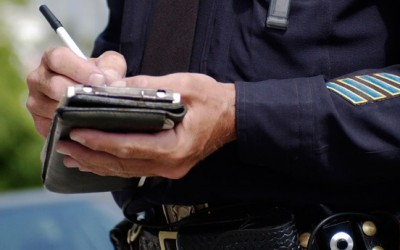4 Ways to Objectively Prove a Brain Injury

Brain injuries are unfortunately common for Nova Scotians. The brain is particularly vulnerable to injury in car accidents, birth trauma, falls, workplace accidents, etc. The Brain Injury Association of Canada estimates that 160,000 Canadians suffer a brain injury every year, and that about half of these are the result of a car accident or a fall.
While some people will suffer a mild concussion with have no lasting impact, a large number of injuries of this sort have lasting effects, like chronic headaches, difficulty concentrating, and chronic fatigue. Brain injuries can result in serious long-term disability.
There is still a lot doctors don’t know about brain injuries, despite how common they are. What can be especially difficult for victims of a traumatic brain injury is that such injuries will often appear “normal” on tests. A brain injury may show no obvious damage on traditional diagnostic tools such as regular MRIs and CT scans.
The lack of objective evidence for these injuries can make it much harder to prove traumatic injuries in personal injury claim after an accident. Insurance companies routinely point to a lack of objective evidence of a brain injury to try to reduce the amount of compensation owed to the victim of a brain injury. This can be frustrating and quite unfair.
Fortunately, an experienced brain injury lawyer will almost always be able to help prove that damage has occurred to ensure that the impacts of the brain injury will be fairly compensated. Here are a few ways in which people can prove a brain injury:
- New, modern imaging technologies – while traditional imaging used in a hospital setting will often not detect subtle changes to the brain following an accident, there are new technologies capable of doing just that. For example, a quantitative EEG uses brain wave activity and brain mapping computers to depict how long each area of the brain spend in each of its basic rhythms. By comparing a patient’s mapping to that of the general population, it is possible to objectively demonstrate a brain injury.
- Friends/family/coworkers – given that most medical experts would acknowledge the limits of scientific evidence in terms of definitively proving the existence of a brain injury, we often turn to before-and-after witnesses. These individuals can help prove the existence of a brain injury by speaking to observed changes personality, behavior or skills.
- Neuropsychological testing – traditionally, these assessment are often as close as people get to objectively proving a brain injury. The test is administered by a neuropsychologist and is performance-based method to assess cognitive functioning. This method is used to examine the cognitive consequences of brain damage, brain disease, and severe mental illness. There are several specific uses of neuropsychological assessment, including collection of diagnostic information, differential diagnostic information, assessment of treatment response, and prediction of functional potential and functional recovery.
- Blood-based diagnostics – This diagnostic technique is very new and not yet readily available in a traditional medical setting. But developments give cause for hope. Biomarkers are generally defined as measurable internal indicators of changes in organisms at the molecular or cellular level (markers of stress and malfunction, as well as injury) that can also provide information regarding injury mechanisms. Basic science research and developments in the field of proteomics have greatly advanced our knowledge of the mechanisms involved in damage and have led to the discovery and rapid detection of new biomarkers that were not available previously.
The experienced brain injury lawyers at Valent Legal understand the significant impact a brain injury can have on one’s quality of life. We have proven experience helping victims of brain injuries, and their families, navigate a complex legal and medical system in order to ensure that they receive the best treatment and compensation available. If you have any questions or want to reach out for help, please don’t hesitate to contact us for free legal advice.






















